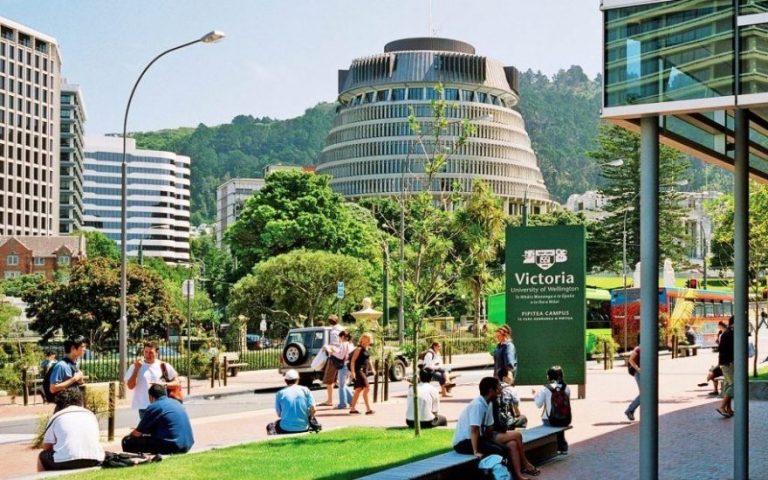Accommodation Options For NWU Students – A Detailed Guide
Choosing the right accommodation is one of the most important decisions for students attending North-West University (NWU). Whether you’re a first-year student or a returning one, finding a suitable place to live can significantly impact your university experience. With various accommodation options available both on-campus and off-campus, it’s essential to understand what each option offers and how to make the best choice for your lifestyle, budget, and academic needs.
This comprehensive guide will walk you through the accommodation options for NWU students, including on-campus residences, off-campus housing, and alternative living arrangements. We’ll also provide valuable tips for finding the best place to live and how to navigate the application process.
1. On-Campus Accommodation at NWU
NWU offers a range of on-campus accommodation for students who prefer to stay close to the university’s academic facilities and student support services. Living on campus provides convenience, security, and a sense of community, making it a popular choice among students.
Types of On-Campus Accommodation
NWU offers various types of accommodation, each designed to meet the needs of different students. These options range from traditional residence halls to more independent self-catering apartments. Here are some of the main types of on-campus accommodation available:
A. Traditional Residence Halls
Traditional residence halls are one of the most common forms of accommodation on campus. In these halls, students typically share rooms with one or more roommates, and they have access to shared bathrooms, kitchens, and communal areas. Traditional residence halls foster a strong sense of community, as students interact frequently with others in their residence.
- Room Sharing: Most rooms are shared with one or more students, offering a communal living experience. This is a great option for students who enjoy socializing and being part of a vibrant student community.
- Common Areas: Shared spaces such as lounges, kitchens, and study areas are available for residents to use. These spaces encourage collaboration and social interaction.
B. Self-Catering Residences
Self-catering accommodation provides students with more independence while still being close to the university. In these residences, students have access to private rooms and share communal kitchen and bathroom facilities. This option allows students to prepare their own meals and live in a more self-sufficient manner.
- Private Rooms: Many self-catering residences offer private rooms, giving students more privacy while still being able to enjoy the benefits of living in a student residence.
- Kitchen Facilities: Students in self-catering residences have access to shared kitchens, where they can cook their meals.
C. Private Rooms and Apartments
In some cases, NWU also offers private rooms or small apartments for students who prefer more privacy. These accommodations are ideal for students who want to live independently but still be close to campus.
- Private Living Spaces: Students enjoy their own rooms or small apartments, often with private bathrooms and kitchen facilities.
- More Independence: This option offers more autonomy, making it a good choice for students who are more mature or prefer quiet, private spaces.
Benefits of On-Campus Accommodation
- Convenience: On-campus accommodation is close to your classes, libraries, study areas, and student hubs, making it easier to manage your time and reduce transportation costs.
- Security: On-campus residences are typically secure, with controlled access, security personnel, and surveillance cameras to ensure the safety of residents.
- Community and Social Opportunities: Living on campus allows you to meet other students, join campus clubs, attend events, and participate in social activities. It fosters a strong sense of belonging and can be especially helpful for first-year students adjusting to university life.
- Academic Support: Many on-campus residences provide academic assistance, mentoring, and tutoring, helping students with their studies.
How to Apply for On-Campus Accommodation
To apply for on-campus accommodation at NWU, follow these steps:
- Check Availability: On-campus spaces can be limited, so it’s essential to check for availability as soon as possible. You can contact the NWU Accommodation Office for details.
- Complete the Application: Most applications for on-campus accommodation are submitted online through the NWU student portal. Be sure to follow all instructions and fill out the required information carefully.
- Submit Required Documents: You will likely need to provide documentation, such as proof of registration at NWU, your ID, and any financial details for bursary or funding applications.
- Wait for Allocation: Once your application is processed, the university will allocate accommodation based on availability and other factors. You will be notified through your student portal or email.
Costs of On-Campus Accommodation
The cost of on-campus accommodation at NWU varies depending on the type of residence and the amenities provided. Generally, self-catering accommodations and private rooms tend to be more expensive than traditional residence halls. The university’s Accommodation Office provides information on current rates and payment options, including any funding or bursary support available for students.
2. Off-Campus Accommodation Options for NWU Students
For students who prefer to live off-campus or are unable to secure on-campus accommodation, there are numerous off-campus accommodation options near the NWU campuses. Off-campus housing gives students more independence and flexibility while still providing easy access to campus.
Types of Off-Campus Accommodation
- Private Apartments: Many students choose to rent private apartments or flats near campus. These can range from one-bedroom units to larger apartments that can be shared with roommates.
- Shared Flats and Houses: Students can share flats or houses with other students to reduce costs. This is a popular option, as it allows students to split rent and utilities while still enjoying private bedrooms and common spaces.
- Student-Only Accommodation: Some private property developers offer student-only complexes near NWU campuses. These complexes are designed specifically for students and often offer features like furnished rooms, high-speed internet, and communal study spaces.
Benefits of Off-Campus Accommodation
- Independence: Living off-campus gives students the freedom to manage their own living arrangements. They can choose how to organize their space, cook their meals, and set their own schedules.
- More Space: Off-campus accommodation often provides more space than on-campus residences, which is appealing to students who prefer larger living areas.
- Variety of Options: There is a wide range of off-campus housing available, from affordable shared flats to luxury apartments. Students can select the option that best fits their budget and lifestyle.
- Potentially Lower Costs: Depending on the location and type of accommodation, off-campus housing can sometimes be more affordable than living on campus, especially if students share with others.
How to Find Off-Campus Accommodation
Finding off-campus accommodation near NWU requires some research. Here are some strategies to help you secure a place:
- Online Property Listings: Websites like Private Property, Gumtree, and Student Accommodation South Africa often list available rental properties in areas near NWU campuses. You can filter these listings by price, location, and amenities to find options that suit your needs.
- Social Media Groups: Join local Facebook groups or WhatsApp groups for NWU students. These platforms often have posts from other students looking for roommates or renting out rooms in shared accommodation.
- Real Estate Agents: If you’re unfamiliar with the area or need assistance, consider contacting local real estate agents who specialize in student accommodation. They can help you find suitable housing that meets your preferences and budget.
Costs of Off-Campus Accommodation
Off-campus accommodation costs vary depending on the type of property, location, and the number of roommates you have. Shared flats and houses are usually more affordable than private apartments. Keep in mind that you will also need to budget for additional costs such as utilities (water, electricity, internet), transportation, and groceries.
3. Accommodation Tips for First-Year Students
For first-year students, choosing accommodation can be a daunting task. Here are some helpful tips to make the process easier:
- Apply Early: On-campus accommodation can be in high demand, so apply as soon as the application process opens. Early applications increase your chances of securing a spot.
- Consider Your Budget: Be realistic about what you can afford. If you’re on a tight budget, sharing accommodation or opting for self-catering residences might be more affordable.
- Think About Location: Proximity to campus is crucial. If you choose off-campus housing, make sure it is within a reasonable distance from the university to minimize transport costs and commuting time.
- Get Involved: Living on campus provides more opportunities to engage in campus life. First-year students can join clubs, attend events, and meet other students, which can make the transition to university life easier.
Choosing the right accommodation is a key decision for NWU students. Whether you decide to live in on-campus residences, opt for off-campus housing, or explore alternative living arrangements, it’s important to consider factors such as budget, convenience, and personal preferences. With the right accommodation, you can have a successful and enjoyable university experience at NWU.




